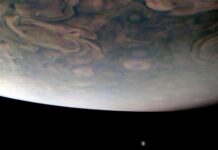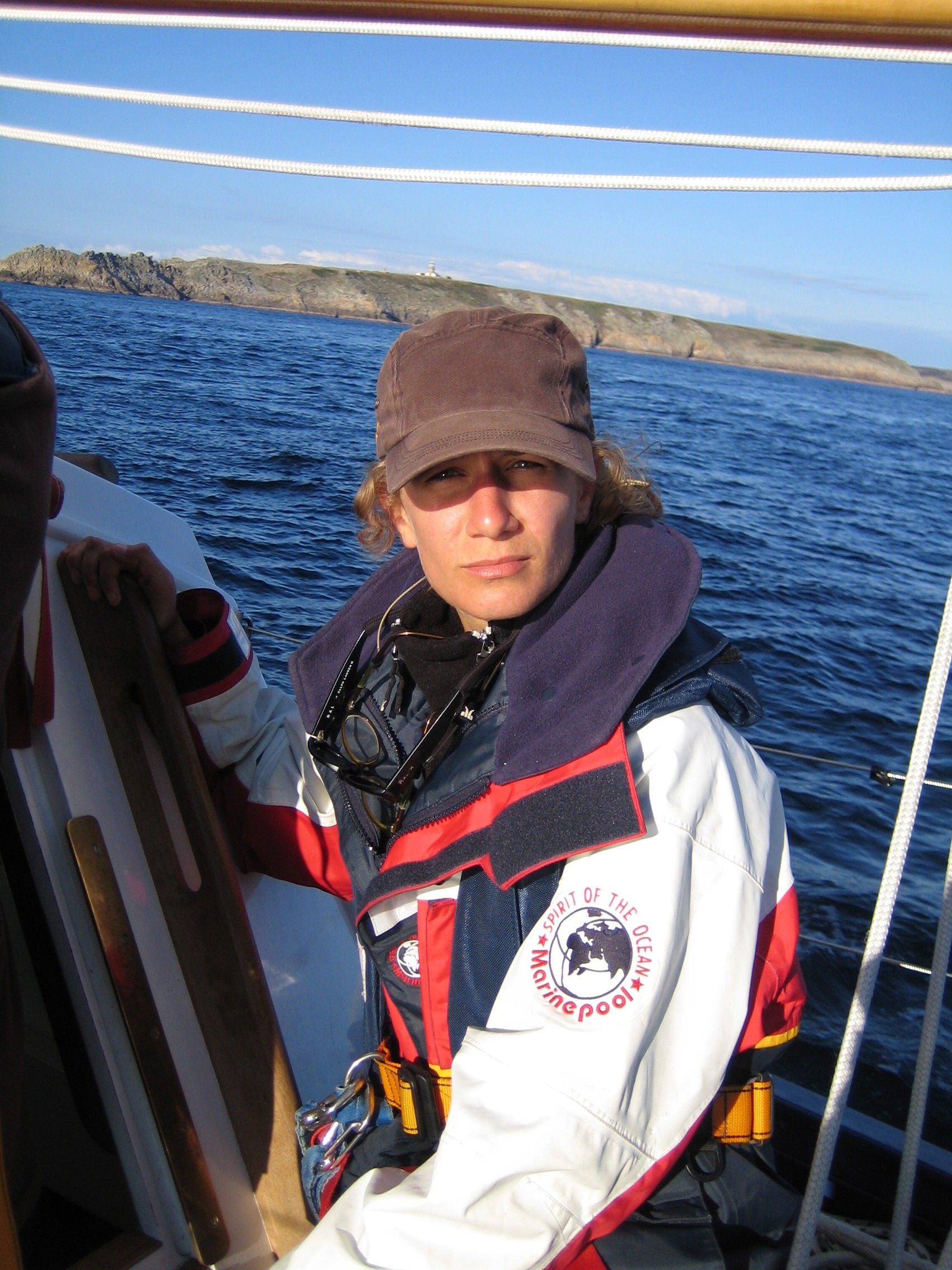Exploring New Horizons: The Inspiring Journey of Research Scientist Meloë Kacenelenbogen
In the realm of scientific exploration, venturing into the unknown often requires stepping out of one’s comfort zone. Meloë Kacenelenbogen, a dedicated research scientist at NASA’s Goddard Space Flight Center, exemplifies this ethos. Drawing inspiration from the words of French author André Gide, Kacenelenbogen embodies the courage needed to pursue groundbreaking discoveries in the field of climate science.
Who is Meloë S. Kacenelenbogen?
Meloë S. Kacenelenbogen is a research scientist at the Climate and Radiation Laboratory within NASA’s Science Directorate. Her work primarily focuses on studying aerosols—tiny particles suspended in the atmosphere that originate from sources such as wildfire smoke, desert dust, urban pollution, and volcanic eruptions. These aerosols influence both air quality and the Earth’s climate, making Kacenelenbogen’s research crucial to understanding environmental changes.
The Path to Becoming a Scientist
Kacenelenbogen’s journey into science was not a straightforward one. As a child, she struggled with self-confidence but gradually built it by tackling challenges she initially deemed insurmountable. Her educational path reflects this determination, having pursued the toughest subjects she could find. Despite numerous setbacks, she consistently learned from each experience and continued moving forward, never allowing fear of failure to hold her back for long.
Kacenelenbogen was born in Maryland but spent much of her childhood in France, which contributed to her fluency in French. She holds bachelor’s and master’s degrees in mechanical engineering and physical methods in remote sensing from the Université Pierre et Marie Curie in Paris. In 2008, she earned a Ph.D. in atmospheric physics from the Université des Sciences et Technologies de Lille, focusing her research on applying satellite remote sensing techniques to study air quality.
Career Highlights and Contributions
Following her Ph.D., Kacenelenbogen joined the Atmospheric Lidar Group at the University of Maryland, Baltimore County. There, she engaged in research involving both spaceborne and ground-based lidars. Her career took a significant turn in 2009 when she received a NASA Post-doctoral Program fellowship at Ames Research Center in California, where she spent 13 years investigating atmospheric aerosol distributions using satellites, aircraft, and ground-based observations.
In 2022, Kacenelenbogen transitioned to the Climate and Radiation Lab at Goddard, where she continues to make invaluable contributions to the understanding of aerosols and their impacts.
Understanding the Impact of Aerosols
Aerosols play a significant role in shaping the Earth’s climate and influencing air quality. These particles can penetrate deep into our lungs, posing health risks, especially the smaller they are. Aerosols originate from various sources, including vehicles, industrial activities, and natural events like wildfires. The increasing frequency and intensity of wildfires, driven by climate change, highlight the urgency of Kacenelenbogen’s research.
Kacenelenbogen recounts the surreal experience of living in California during the summer of 2020 when wildfire smoke and COVID-19 lockdowns turned the sky an eerie orange. Such firsthand encounters reinforce her commitment to understanding aerosols and their effects.
Contributing to NASA’s Atmosphere Observing System (AOS)
Kacenelenbogen is also part of the team working on NASA’s Atmosphere Observing System (AOS), a next-generation satellite mission designed to monitor aerosols, clouds, convection, and precipitation in the Earth’s atmosphere. Her role involves integrating data from various platforms—spaceborne, airborne, and ground-based—to address scientific questions, develop algorithms, and validate satellite measurements.
Working on AOS pushes Kacenelenbogen to continuously expand her knowledge and skills, a challenge she embraces with enthusiasm.
The Importance of Intellectual Challenges
Kacenelenbogen thrives on intellectual challenges. Her early experiences taught her that stepping into the unknown and confronting fear head-on is integral to personal and professional growth. This mindset has shaped her approach to overcoming obstacles and achieving success.
Learning from Mentors and Mentoring Others
Mentorship has played a pivotal role in Kacenelenbogen’s journey. Inspired by a mentor who shared André Gide’s quote about exploring new oceans, she has learned the value of venturing beyond her comfort zone. Deliberately choosing mentors who are respected, supportive, and uplifting has been instrumental in her development.
As a mentor herself, Kacenelenbogen advises others to embrace discomfort as a natural part of their field. She encourages them to seek out mentors who can guide and inspire them on their paths.
The Joy of Teamwork
Kacenelenbogen finds great satisfaction in working with teams. The positive energy and collaboration within a team setting enable everyone to achieve more collectively. Whether leading a team or being part of one, she values the synergy and camaraderie that come with shared scientific endeavors.
Celebrating Career Milestones
For Kacenelenbogen, the happiest moments in her career revolve around publishing research papers. Each publication represents the culmination of hard work, dedication, and collaboration, akin to the sense of accomplishment felt when completing a Ph.D. thesis. Sharing research findings with the global scientific community is a source of immense pride and fulfillment.
Looking to the Future
Kacenelenbogen envisions herself as a major contributor to the AOS mission by the time the satellites launch. Her dedication to advancing climate and air quality research drives her career aspirations.
Balancing Work with Personal Interests
Outside of her professional life, Kacenelenbogen enjoys engaging in mixed martial arts and exploring the ocean through diving and sailing. Her love for art, particularly impressionist paintings, allows her to reconnect with her Parisian roots.
Literary Inspirations
Kacenelenbogen’s favorite authors include Zweig, Kafka, Dostoyevsky, Saint-Exupéry, and Kessel. The latter two, known for their writings on early aviators, were particularly influential during her formative years.
Gratitude and Guiding Principles
Kacenelenbogen acknowledges her family’s unwavering support, considering them her rock. Her guiding principles, inspired by Dostoevsky, emphasize responsibility, purpose, pride, justice, and honor. These values underpin her approach to life and work.
In summary, Meloë Kacenelenbogen’s journey as a research scientist exemplifies the courage and determination required to explore new frontiers in climate science. Her contributions to understanding aerosols and her involvement in the Atmosphere Observing System highlight her dedication to advancing our knowledge of the Earth’s atmosphere. Through mentorship, teamwork, and a commitment to intellectual challenges, Kacenelenbogen continues to inspire others in the scientific community.
For more information on her work and related projects, visit NASA’s Goddard Space Flight Center website.
For more Information, Refer to this article.

































